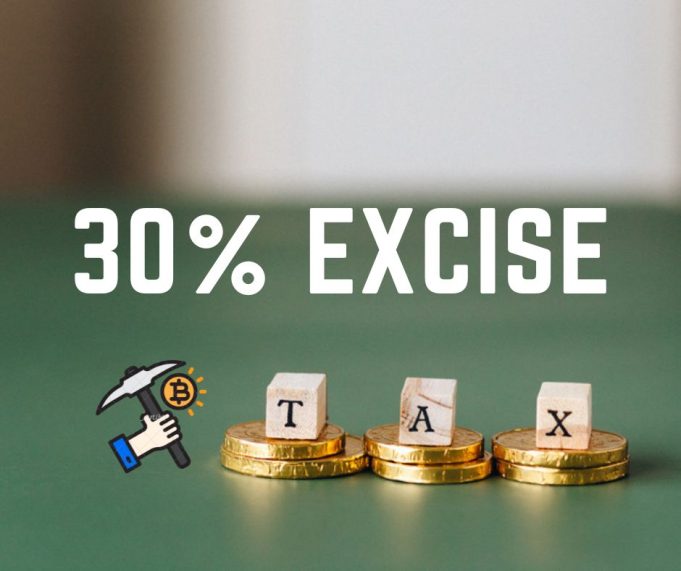The U.S. Treasury Department has proposed a 30% excise tax on the cost of powering crypto mining facilities. This tax would be phased in over the next three years, increasing 10% each year. Companies using computing resources to mine cryptocurrencies would be required to report how much electricity they use and what type of power was tapped. This proposal is part of the department’s “Greenbook,” which is a list of tax proposals and explanations for the U.S. President’s budget proposal. The tax is intended to help reduce the environmental impact of crypto mining, which is a major contributor to global carbon emissions.
This document proposes an excise tax on electricity usage by digital asset miners in the U.S. to reduce mining activity and its associated environmental impacts. The tax is intended to lower the number of mining machines in the country, as well as reduce energy consumption and prices for those who share an electricity grid with miners. It is also hoped that the tax will reduce the uncertainty and risks to local utilities and communities caused by the highly variable and mobile nature of mining activity.
President Joe Biden has proposed a budget that includes revenue-generating tax rules to fund his fiscal priorities. The proposal includes raising the corporate tax rate to 28%, increasing the top marginal tax rate to 39.6%, and increasing the capital gains tax rate for those earning over $1 million. The House of Representatives and Senate must pass the budget before these tax rules can be implemented, but the Republican-led House is unlikely to accept the proposal as-is. Biden’s budget proposal indicates his fiscal priorities as he prepares to announce his bid for a second term as U.S. President.
President Joe Biden’s 2024 budget proposal includes a provision to close the so-called wash sale loophole in the tax code. This loophole allows people to harvest their tax losses by selling digital assets at a loss and then immediately buying them back. The new rule would prevent this practice, ensuring that people pay the appropriate taxes on their digital asset investments. This update to the tax code would help ensure that people are paying their fair share of taxes on their digital asset investments, providing greater transparency and fairness in the crypto market. The new rule would also help to level the playing field for all investors, ensuring that everyone is paying their fair share of taxes.
The Greenbook, a document released by the US Treasury Department, has proposed three new crypto-related provisions. One of these provisions would expand the securities loans rules to include digital assets. This would allow loans of actively traded digital assets recorded on cryptographically secured distributed ledgers, provided that the loan has terms similar to those currently required for loans of securities. This proposal would provide more flexibility and security for digital asset holders, allowing them to access liquidity without having to sell their assets. The other two proposals focus on the taxation of digital assets and the development of a digital asset regulatory framework. These proposals could help to create a more secure and transparent environment for digital asset holders and investors.
The 2021 Infrastructure Investment and Jobs Act includes several provisions related to cryptocurrency taxation. These include information reporting rules for foreign account-holders, requiring people with foreign financial accounts holding at least $50,000 in crypto to report these holdings in their tax reports, and amending mark-to-market rules to include crypto. The Act is part of the government’s ongoing efforts to ensure that all financial brokers are compliant with the Foreign Account Tax Compliance Act. The provisions are designed to ensure that all cryptocurrency holders are paying their fair share of taxes.













